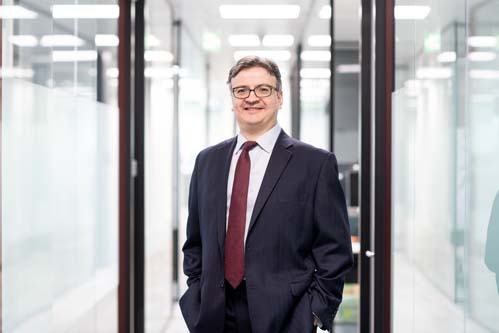Additive manufacturing
Coatings
Construction
Packaging
Polymers and plastics
Printing tech
The industrial manufacturing and processing sector covers a wide spectrum of manufacturing processes and materials, and is applied at a variety of scales, with clients from the very large to the very small.
As might be expected, a key challenge in this field is the environmental impact of material extraction and use. The cost and availability of raw materials drives innovation in the use of synthetic substitutes in a variety of manufacturing processes, so too does the need for greener manufacturing processes and alternative fuels which reduce the environmental impact. Other approaches to conserving resources have driven innovation in extending the lifetime of machine parts and equipment. Equally, with the solutions becoming more complex, there is a greater need for enhanced levels of precision to function. Addressing these key issues is an important priority for many of our clients.
The industrial manufacturing and processing team
Additive manufacturing is becoming ubiquitous in the field of industrial manufacturing, and we have helped clients protect innovations relating to this technology in diverse fields including aerospace components, racing cars and catalysts. We have also protected a variety of systems across the many ways of achieving additive manufacture, both in relation to the mechanism of manufacture, the materials used and the control systems associated with those.
We have numerous clients in the field of packaging, in particular in relation to food items and medical products, for whom high quality is incredibly important in view of their more stringent hygiene requirements. Our expertise stretches to the manufacture of microscopic products such as semiconductor devices and coatings.
At Boult we have experience in acting for clients in the field of construction, from multi-storey buildings, to piling systems, dealing both with the construction materials themselves, and with the methods of manufacture and associated equipment such as excavators, trucks and cranes.
“I love the variety inherent in the manufacturing and processing sector. Working on IP for huge international manufacturers, to working with small, cutting edge manufacturers is hugely rewarding.”

The industrial manufacturing and processing sector covers a wide spectrum of manufacturing processes and materials, and is applied at a variety of scales, with clients from the very large to the very small.
As might be expected, a key challenge in this field is the environmental impact of material extraction and use. The cost and availability of raw materials drives innovation in the use of synthetic substitutes in a variety of manufacturing processes, so too does the need for greener manufacturing processes and alternative fuels which reduce the environmental impact. Other approaches to conserving resources have driven innovation in extending the lifetime of machine parts and equipment. Equally, with the solutions becoming more complex, there is a greater need for enhanced levels of precision to function. Addressing these key issues is an important priority for many of our clients.
The industrial manufacturing and processing team
Additive manufacturing is becoming ubiquitous in the field of industrial manufacturing, and we have helped clients protect innovations relating to this technology in diverse fields including aerospace components, racing cars and catalysts. We have also protected a variety of systems across the many ways of achieving additive manufacture, both in relation to the mechanism of manufacture, the materials used and the control systems associated with those.
We have numerous clients in the field of packaging, in particular in relation to food items and medical products, for whom high quality is incredibly important in view of their more stringent hygiene requirements. Our expertise stretches to the manufacture of microscopic products such as semiconductor devices and coatings.
At Boult we have experience in acting for clients in the field of construction, from multi-storey buildings, to piling systems, dealing both with the construction materials themselves, and with the methods of manufacture and associated equipment such as excavators, trucks and cranes.
What sets us apart
The key to our approach is a deep understanding of the science and technology behind manufacturing processes and machinery. We invest time with our clients in understanding the underlying chemistry, engineering or physics of our clients’ IP. We can then apply it to the patent applications we draft. We always endeavour to speak to the inventor as that is often critical in creating patents that stand up to rigorous scrutiny.
Given the scope and scale of manufacturing as a field of IP, so much of what we do crosses over between specialisms. Nanotechnology draws upon our materials and electrical devices teams; metallurgy and alloys rely on support from our chemical team and our materials team. We provide our clients with cross-disciplinary support they need to meet the unique parameters of their IP – the right people, in the right team, is the foundation to a successful patent. We work closely as a multi-disciplinary team, and so regularly, that this is second nature to us, even on the most complicated of projects.
We are proud of our approach, and our record in the industrial manufacturing and processing sector speaks for itself. We have many longstanding clients, some of whom we have been supporting for decades. That, above all else, proves that we have the skills, personality and acumen to make a real difference for our clients.